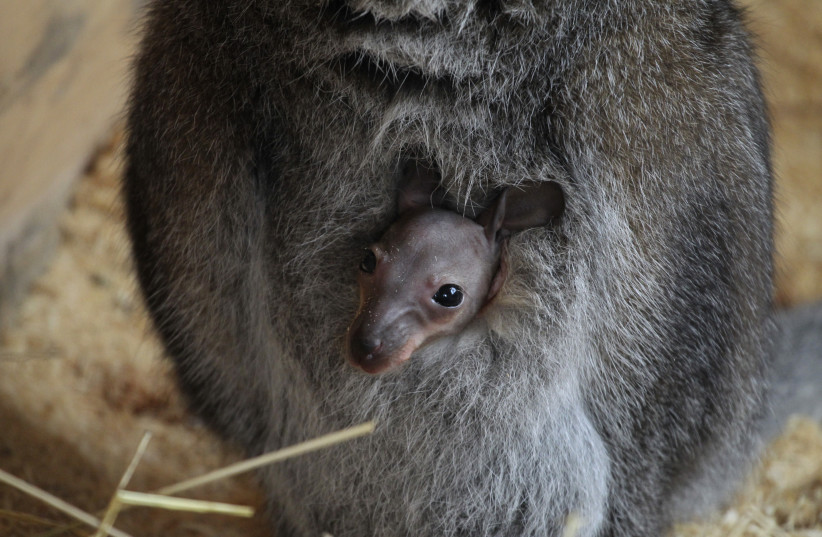Marsupials are evolving faster than humans, other animals – study
"We often have this bias that ours is the group that evolution is directed towards, but that's not how evolution works," explained Goswami.
Marsupials are evolving at a more advanced rate than other mammals like humans, despite pre-existing notions that they are more primitive, according to a new study published April 28.
The peer-reviewed study, published in the journal Current Biology, found that marsupials have evolved more than other animals that shared the same ancestor.
"For a long time, people have treated marsupials as 'lesser mammals,' which represent the intermediate stage between placental mammals and egg-layers," explained Anjali Goswami, an evolutionary biologist from the Natural History Museum in the UK. "It turns out that marsupials are the ones that are far more evolved from the ancestral form."
Why did scientists believe that marsupials were not as evolved?
Many scientists had previously believed that marsupials were not as evolved because of their child-rearing practices. For example, kangaroos give birth to joeys when the joey is still in an early stage of development.
Scientists felt that baby joeys developing in their mother’s pouches, instead of in an egg or inside their mothers, their development was overly complicated. Most other mammals, like humans and whales, are birthed at a more advanced stage of development.

"As a member of the placental mammals, we often have this bias that ours is the group that evolution is directed towards, but that's not how evolution works," explained Goswami.
How did the researcher come to this conclusion?
The researchers examined 22 specimens, from creatures that still exist, at the Natural History Museum. The researchers then constructed an evolution timeline showing the continued changes within species.
Through conducting 3D micro-CT scans, the researchers found that marsupial skulls developed more than placental mammals that evolved from the same ancestor from 160 million years ago.
This led researchers to believe that the early birth of marsupials is a result of a more specialized type of development, which requires more evolutionary changes.
"What we could clearly show is the marsupial way of developing is the one that's changed the most from the ancestor of marsupials and placentals," added Goswami.
"How marsupials reproduce isn't an intermediate form between egg-laying and placental mammals. It's just a completely different way of developing that marsupials have evolved."
Limitations of the research
The researchers were only able to analyze 22 species. This may have led to important data being lost.
Additionally, the team did not have access to enough data regarding the early developmental state of platypus.
Finally, evolutionary changes may not reflect the advancement of a species but the environment they are in. Environmental changes create conditions which benefit some traits, and holders of those traits are able to pass on their genetic material and push forward a new evolutionary development.
"It's been suggested that the marsupial strategy is better if you're living with a lot of environmental instability," clarified Goswami. "Placental mammals have long gestation times, so if an animal goes through a period where resources dry up, both mother and offspring would likely die because it's all internal."
"With a marsupial, it's a much lower risk strategy because the mother can easily abandon them at a very early developmental stage, so at least the mother can survive and try again later."
"So by stretching out development and making it more external to the mother, marsupials may be able to cope better with less stable environmental situations. But this is very much a guess and a hypothesis that needs to be tested."


No comments:
Post a Comment
Stick to the subject, NO religion, or Party politics